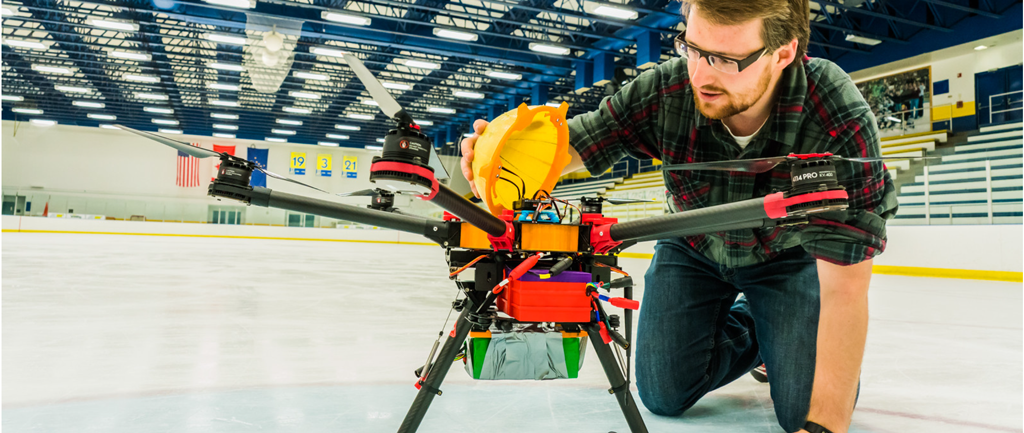Electrical Engineering
Learn how to design, program and fly a drone to map land or monitor a wildfire. Build a cube-sat to collect and download information from space. Design and integrate renewable energy systems for the future power grid. Or develop a wireless system to control the lights and appliances in your home from your smart phone. You can do all of this and more when you earn your master’s degree in electrical engineering at UAF.
Our nationally and globally recognized faculty have research expertise in areas such as wireless sensor networks, renewable energy, unmanned aeronautical systems and engineering in extreme environments — just to name a few. A variety of research and internship opportunities are also available with łÉČËӰƬ-based industries and federal agencies such as NASA, DOE and NREL.
Get more information
Why Earn Your Electrical Engineering Master’s Degree at UAF?
UAF's M.S. in electrical engineering program is one of the lowest cost graduate programs in the nation, offering research opportunities that rival the top engineering universities. We also offer exceptional opportunities to gain real-world problem-solving experience that will set you apart in your field and give you an edge in the job market.
What Can You Do With a Master’s in Electrical Engineering?
When you earn your electrical engineering degree at UAF, you can count on getting a job: 100% of our program alumni are employed (or pursuing their Ph.D.’s) within one month of graduation. Some are even hired and begin employment while finishing their thesis or project. Completing your master’s degree will also help you get promoted faster and earn a higher starting salary.
Electrical Engineering Master’s Degree Requirements
Our master’s degree in electrical engineering offers three options:
- Thesis
- Non-thesis project
- Non-thesis coursework
The thesis option typically requires 2.5 years to complete, while the project and coursework options take about two years.
Graduate Programs Related to Physics
Get Started on Your Electrical Engineering Master’s Degree
Take the next step toward earning your M.S. in electrical engineering. We have the resources to help you get started.



